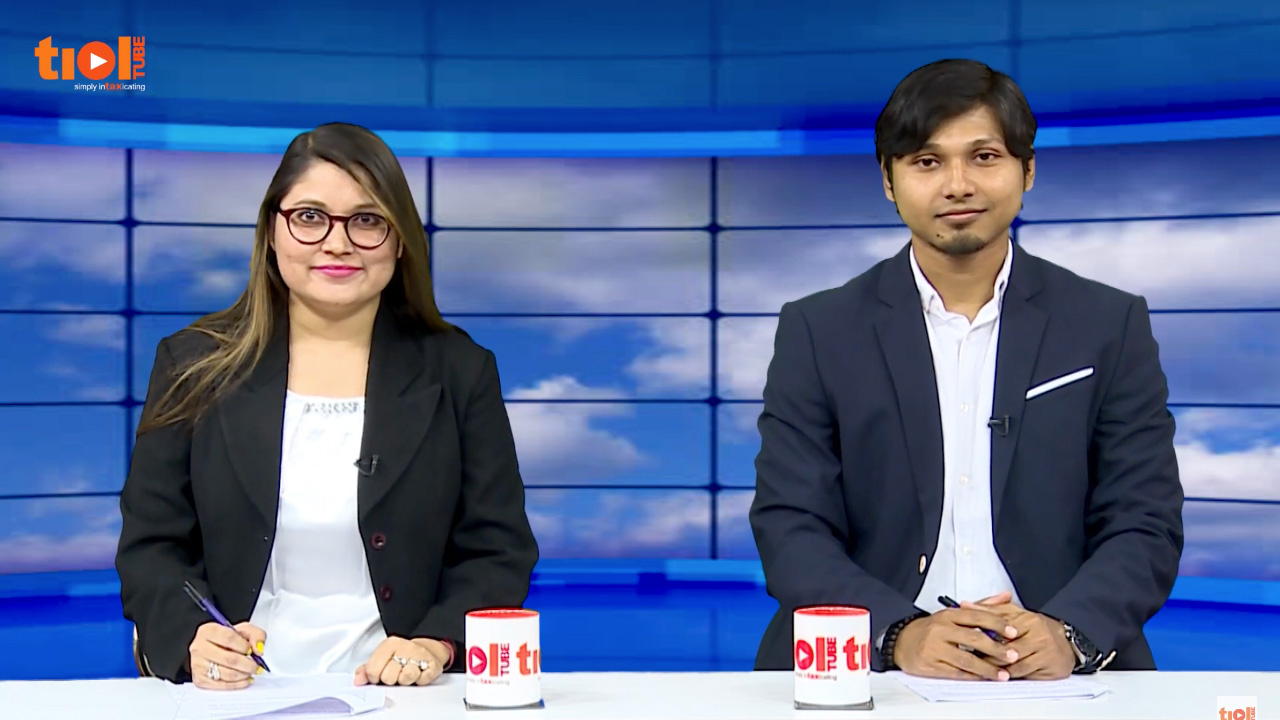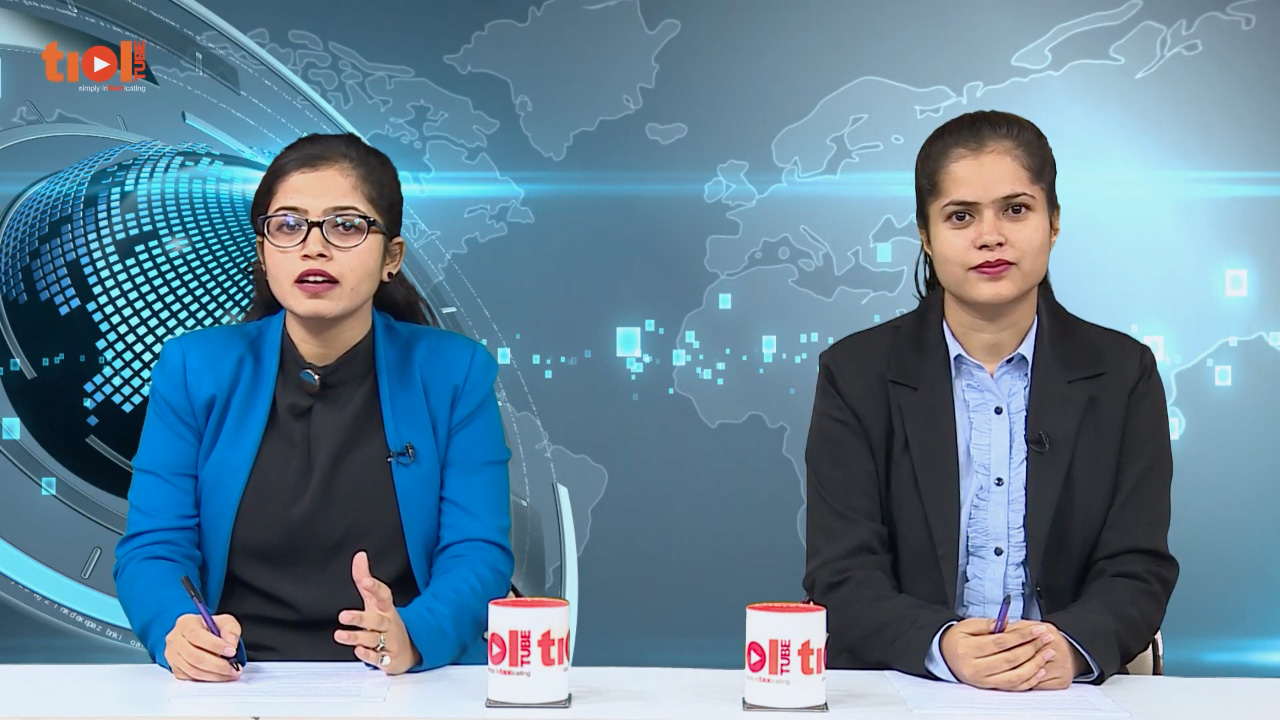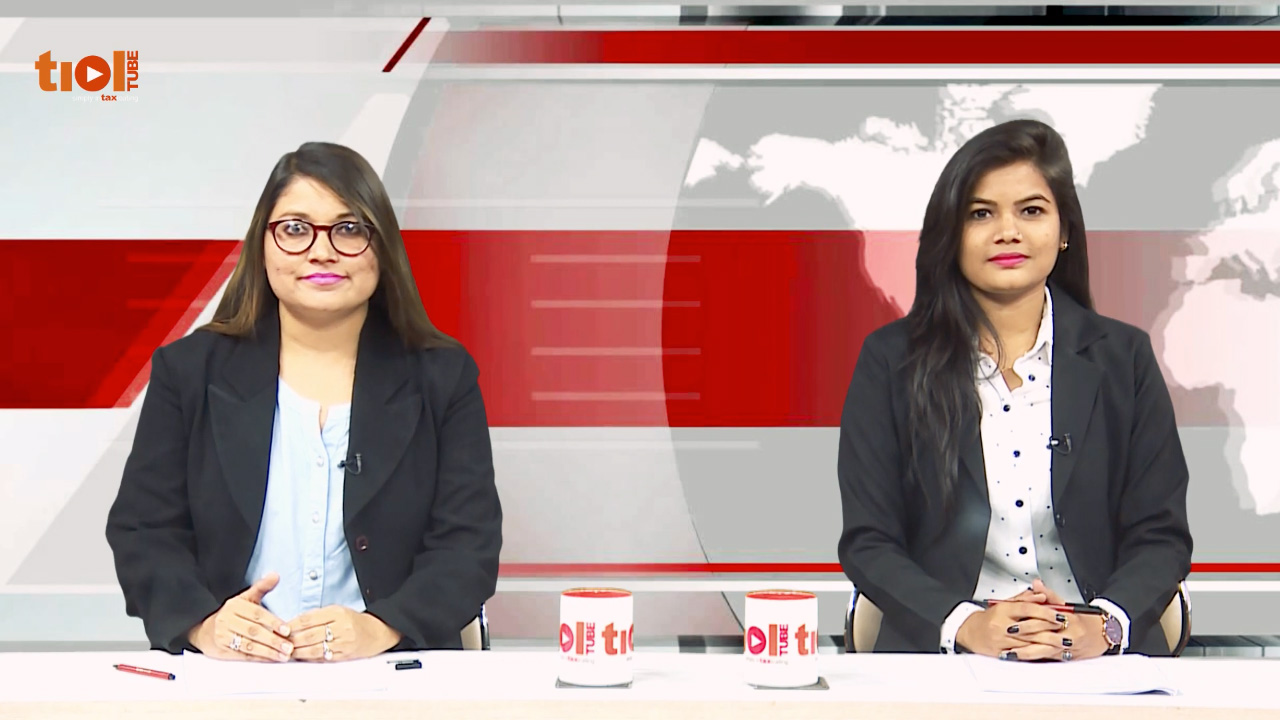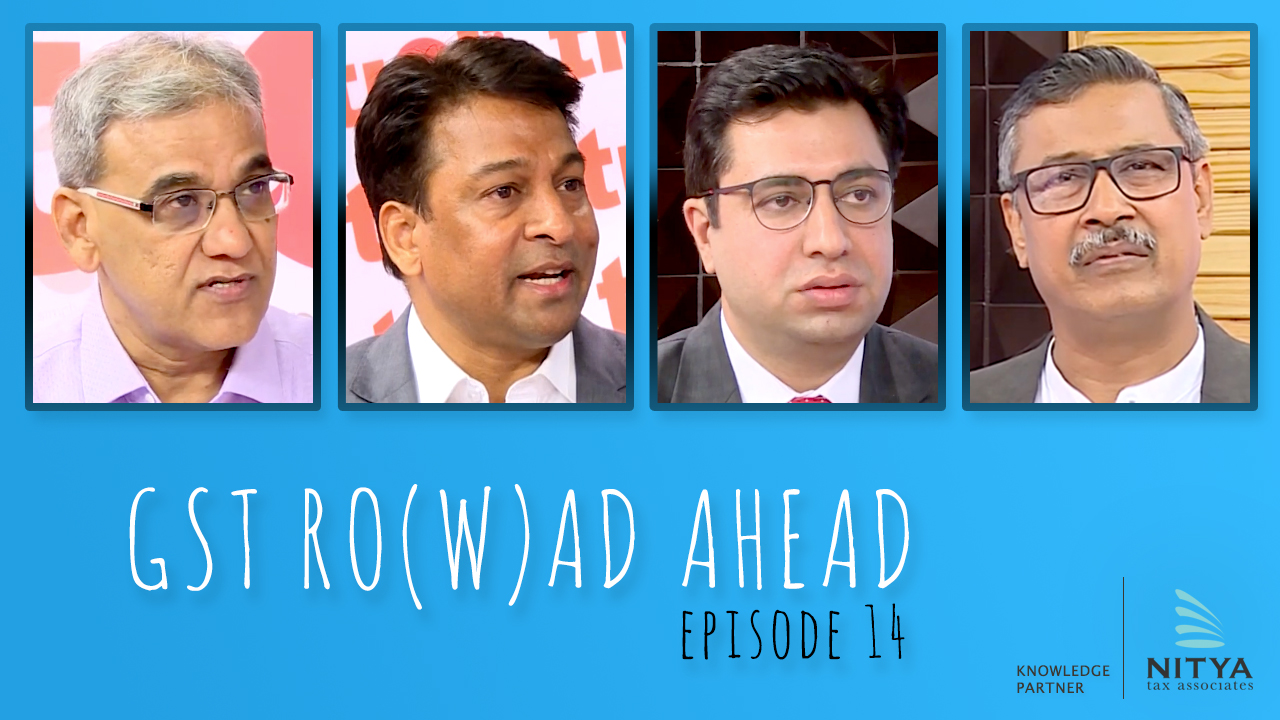|
SERVICE TAX
ST - Whether the services of Computer Reservation System [CRS] Companies for which contractual agreement was made between the Headquarters of Cathay Pacific Airlines at Hong Kong be said to be provided as services received by the Cathay Pacific, Branch Office located in India, for the purpose of levy of service tax - appellants have, in their appeal and submissions, argued that for the purpose of levy of ST under reverse charge mechanism (section 66A of the Finance Act, 1994 [Act]), the services should have been received by them from the service provider who is not having any permanent establishment in India -in the present case, they are not the recipient of the service and their head office located in Hong Kong is the recipient of the service -since no service has been received by them they are not liable to pay any ST in respect of the services rendered by the foreign service provider to their head office located in Hong Kong -they heavily rely on the decision of the Tribunal in the case of British Airways - 2014-TIOL-979-CESTAT-DEL in their support.
Held - The independent identity of branch office or head office of the appellant is not the criteria for determination of liability to ST in terms of section 66A of the Act -the issue to be determined is the location of provider and recipient of service as per the provisions of that section -in the instant case, the "place of business, fixed establishment, permanent address or usual place of residence" of recipient of service are the relevant criteria for determination of the liability to payment of ST, in case where the provider of service is located outside India -all these terms have been considered by the Apex Court in the decisions of (i) Indian Performing Arts Society Vs Sanjay Dalia [Order in Civil Appeals No.10643-10644 of 2010] and (ii) Formula One World Championship Vs Commissioner of Income Tax [2017 (80) taxmann.com 347 (SC)] -in view of the principles laid down by the Apex Court in the above stated cases, there can be no dispute about the fact, that branch office of Cathay Pacific located in India, is place of business for the Cathay Pacific Airlines having its headquarters at Hong Kong -that being so, the services received by the branch office from the CRS companies for facilitating the booking of tickets through travel agents in India are services received in India and appellants will be liable to pay ST in terms of section 66A of the Act -from the chart depicting the relationships as provided by the appellant, it is clear that the CRS Companies are provider of the service through their data processing centres located outside India and the services provided by the CRS Companies are used by the Cathay Pacific Airlines for booking the tickets for customers located in India through the travel agents located in India -in respect of the tickets booked for customers in India through the travel agents located in India, the place of business for the Cathay Pacific Airlines, is located in India as per the principles laid down by the Apex Court in cases referred above -for determination of the place of business, the issue such as whether the payments for the service provided are made by the Head Office located in Hong Kong or Branch Office located in India is irrelevant - Supreme Court has, in series of decisions, constantly held that the place of business, is place were the business is done and not the location of the Company/Corporate/Person undertaking the business -the term used in section 66A is "place of business" and not the "principal place of business" -in view of the above, the Bench is not in agreement with the decision rendered by the Tribunal in case of British Airways and subsequently followed in many cases by the Tribunal -since the Bench is not in agreement with decisions rendered by Tribunal in case of British Airways and subsequently,the Bench is left with no option but to refer the matter to President, for constituting a Larger Bench to decide the issue with reference to the scope of section 66A of the Act –in view of the discussions as above,the Bench refers the matter to President for constituting Larger Bench to resolve the following issues:(a) What is true scope and interpretation of section 66A of the Finance Act, 1994(b) Whether the Tribunal has rightly decided in case of British Airways that branch office for the purpose of section 66A was distinct entity from the head office (c) Whether the Tribunal has rightly in case of British Airways held that the payments made by the Head Office against the service received by the branch office located in India, will make the Head Office the recipient of service, for the purpose of section 66A of the Finance Act, 1994 : CESTAT [para5.6, 5.7, 5.8, 5.9, 5.10, 5.11, 5.12, 5.14, 6.1]
- Matter referred to President for constituting Larger Bench: MUMBAI CESTAT 2019-TIOL-2964-CESTAT-ALL
CCE & ST Vs Kripa Shanker Yadav
ST - Appellant had rendered services to IIT, Kanpur CPWD for the period October, 2009 to March, 2014 - Department was of the view that the services of appellant are classifiable under "Works Contract Services" and subject to service tax - However, the appellant claimed that their activities are not for purpose of commerce and industry and are out of purview of tax for the period till 30.06.2012 and are exempted form service tax by virtue to Mega Exemption Notification No.25/2012-ST dated 20.06.2012 for the period w.e.f. 01.07.2012 - Appellate Authority held that primary purpose of IIT, Kanpur and CPWD is not for commerce and industry, therefore, the contracts executed by the respondent for IIT and CPWD do not fall under the purview of Section 65 (105) (zzzza) of the Finance Act, 1994 for the period upto 30.06.2012 - Insofar as period post 01.07.2012 is concerned, Appellate Authority held that it is undisputed that the IIT, Patna whose academic block was to be constructed by the party was set up by an Act of Parliament i.e. Indian Institute of Technology Act, 1961 as an Institute of national importance under Article 248 of the Constitution of India; that as per the definition of government authority as amended on 30th January, 2014, an authority or board or any other body set up by an Act of Parliament or State Legislature is a government authority, therefore, the Commissioner(A) held that No.25/2012-ST dated 20.06.2012 exempts the activity of construction undertaken by the party from payment of service tax - As regards to work done relating to CPWD, the Appellate Authority has held that CPWD is a Central Government owned authority in charge of public sector works hence, it is covered within the definition of term 'government'; that the services are exempted from service tax under entry no.12 (a) of the No.25/2012-ST dated 20.06.2012 - Revenue in appeal before CESTAT.
Held: Commissioner (Appeals) has relied upon the Boards Circular No. 80/10/2004-TRU dated 17.09.2004 as also Patna High Court's decision in the case of M/s Shapoorji Paloonji & Company (P) Ltd. - 2016-TIOL-556-HC-PATNA-ST - The revenue in their memo of appeal, have nowhere contested the applicability of the said decision - Otherwise also, Bench finds that Board Circular supports the assessee's case and it is well settled law that revenue cannot go against the Board Circular - no justification to interfere in the impugned order of Commissioner (Appeals) - Revenue appeal rejected: CESTAT [para 5, 6]
- Appeal rejected: ALLAHABAD CESTAT
2019-TIOL-2963-CESTAT-BANG
Kosamattam Finance Ltd Vs CCT & CE
ST - Order-in-Original has denied the refund only on the ground that the appellant has not produced any evidence regarding the payment of service tax on the said commission during the impugned period – However, impugned order-in-appeal, examined the eligibility of the appellant to the benefit of Notification No.19/2015 dt. 14/10/2015 and which is beyond the show-cause notice because in the SCN, eligibility of the appellant to the benefit of the said Notification is not assailed - impugned order is, therefore, not sustainable on the ground that it has clearly gone beyond the case set out in show-cause notice and the Order-in-Original - on merits also, the issue is no more res integra and has been settled by the Larger Bench of Tribunal in the case of Paul Merchants - 2012-TIOL-1877-CESTAT-DEL - appellant has also given the Chartered Accountant certificate certifying that the appellants have only collected commission from MTSO and not collected service tax thereon but the factum of unjust enrichment has also not been considered by both the authorities - appellant is entitled to the benefit of the exemption Notification No.19/2015 dt. 14/10/2015 but for quantification / verification of proof of payment of service tax and also to examine the unjust enrichment, the matter is remanded back to the original authority: CESTAT [para 6.1, 6.2, 7]
- Matter remanded: BANGALORE CESTAT
2019-TIOL-2962-CESTAT-MUM
Jardine Lloyd Thompson India Pvt Ltd Vs Commissioner of CGST, CCE & ST
ST - Appellant had filed applications on 27.2.2012 claiming refund of ST paid on the input services, used for various operations of the SEZ unit - such refund applications were rejected by the original authority and upheld by the Commissioner (Appeals) by the impugned order, on the following grounds - (a) letter of approval of list of services required for authorized operations was received after the period of refund i.e. on 7.7.2011 (b) appellant had not produced documentary evidence to substantiate receipt and use of specified services within the SEZ area (c) refund of Rs.81,198/- was claimed after 1 year from the date of payment to the vendor (d) letter of approval of list of services required for authorized operations was received after the period of refund i.e. on 7.7.2011 (e) appellant has not produced documentary evidence to substantiate receipt and use of specified services, on which refund is claimed in SEZ - appeal to CESTAT.
Held: With regard to the observations of the lower authorities that since the letter of approval of list of services was received by the appellant on 7.7.2011, the benefit of refund should not be available, it is found that para 2(b) of notification no.17/2011-S.T dated 1.3.2011 nowhere specified that the Letter of Approval has to be obtained before filing of the refund applications - since the appellant is governed under the SEZ Scheme and procuring the services on the basis of Letter of Approval issued by the competent authority i.e. Approval Committee, denial of refund benefit on the ground of non-submission of Letter of Approval prior to the date of refund claim should not be considered as legal and proper - thus, the denial of refund benefit on this ground is not sustainable - as regards denial of refund benefit on the ground of non-submission of documentary evidence to substantiate the receipt and use of specified services, the notification dated 1.3.2011 has prescribed the formula at Column Serial 9.1 and 9.2 read with para 3(f)(iii)(A) - on perusal of the original and the impugned orders, the Bench does not find that the authorities below have specifically alleged regarding non-compliance of the said conditions by the appellant - since the appellant had submitted the information as prescribed under Table (B), denial of refund benefit on the alleged ground of non-submission of documents cannot also be sustained - with regard to the time limit for filing the refund application, the notification dated 1.3.2011 at para 3(e) provides that claim for refund shall be filed within one year from the end of the month, in which actual payment of service tax was made by the SEZ unit - the said clause provides discretion to the CE officers for extending the period of limitation - in this case, though the refund application was not filed within the stipulated time, but the empowered authorities under statute have not extended the time limit for entertaining the refund application - since the fact of use of input services for the purpose of SEZ operations was not alleged or denied by the department, as per the conditions of notification, the appellant should be entitled for the refund benefit - in this connection, the ratio of the order/decision cited by the appellant is squarely applicable to the facts of the present case, wherein this Tribunal has allowed the refund in respect of the claim applications filed beyond the period of one year - in view of the above, no merits found in the impugned order - accordingly, after setting aside the same, the appeals are allowed in favour of the appellant : CESTAT [para 5.1, 5.2, 5.3, 5.4]
- Appeals allowed: MUMBAI CESTAT
CENTRAL EXCISE
CX - Appellants are engaged in the business of supplying food items as per the requirement of the Airlines and the same were packed as per the specification of the Airlines and loaded according to the flight schedule of the Aircraft -the appellant also placed the bits of paper mentioning the name of the caterer on the cutlery packs supplied to Indian Airlines -alleging that placing of the vegetables cuisine, rice, roti, salad etc. on a tray and placing the leaflets bearing the logo as well as the name of "Ambassador Sky Chef " in the cutlery pack placed on the tray, amounted to food preparation bearing brand name and, accordingly, classifiable under Heading 2108.99 upto 28.2.2005 and under Tariff Item 2106 9099 thereafter, duty was demanded – demand confirmed along with interest, penalty imposed – appeal to CESTAT.
Held: Issue has been considered by this Tribunal at length in the case of Taj Sats Air Catering Ltd. - 2016-TIOL-1741-CESTAT-DEL - after analyzing the relevant tariff entry and the issue in detail, it is observed as follows – " … Revenue has not established the liability on the appellant for their activity of manufacturing branded food preparations. Out of Food preparations as contained in the food tray served to the passengers on board, admittedly, the appellants did prepare dal, roti, rice, curry, etc., and supplied the same in trays and bowls covered with aluminum foil. However, these are not the items on which Central Excise duty is sought to be demanded. The Central Excise duty was said to be demanded on the full value of the final complete food tray as served to the passengers on board the aircraft. There is nothing in the impugned order which will substantiate and support the claim of the Revenue on the taxability of such complete food tray on whole value. As such we find that the demand is not sustainable on this ground…" - t he aforesaid judgment is subsequently followed in the case of Sky Gourmet Air Catering Pvt. Ltd. – no reason found to deviate from the observation of the Tribunal in the aforesaid case which has been consistently followed -in the result, the impugned order is set aside and the appeal is allowed: CESTAT [para 5, 6]
- Appeal allowed: MUMBAI CESTAT 2019-TIOL-2961-CESTAT-MUM
Kohler Power India Pvt Ltd Vs CCE & ST
CX - Appellant had availed credit of service tax paid on repair and maintenance service of DG sets during the warranty period which were undertaken at the customers' premises - Alleging that repair and maintenance service since being provided outside the factory is not eligible to credit, demand notice was issued to the Appellant for recovery of the same along with interest and penalty - proceedings dropped by original authority but Commissioner(A) allowing Revenue appeal, hence assessee before CESTAT.
Held: Issue of eligibility of CENVAT Credit of the service tax paid on such repairs and maintenance service has been considered by the Tribunal in series of judgments including in the case of M/s Carrier Airconditioning & Refrigeration Ltd - 2015-TIOL-2998-CESTAT-DEL and Honda Motorcycles & Scooter India Pvt. Ltd - 2019-TIOL-690-CESTAT-DEL , and held to be admissible - following the same, impugned order set aside and appeal allowed: CESTAT [para 6, 7]
- Appeal allowed: MUMBAI CESTAT
2019-TIOL-2960-CESTAT-BANG
Neo Foods Pvt Ltd Vs CCT
CX - The assessee is engaged in manufacture of Gherkins and processed vegetables and are availing CENVAT credit on input and input services - During audit, it was observed that the assessee obtained ISDN registration to distribute common input service - The assessee have two manufacturing units i.e., one 100% EOU and other DTA unit at Tumkur - On verification of ISD invoices, it is noticed that the whole of service tax credit has been availed in EOU unit only - Whereas, the assessee needs to distribute CENVAT credit availed on inputs services on prorate based on turnover as prescribed under Rule 7(b) of CCR, 2004, therefore, CENVAT credit availed is irregular - Also, the assessee availed CENVAT credit amounting to Rs.36,441/- on housekeeping services used in their Head Office - They reversed partially an amount of Rs.18,540/- on gardening services - The assessee has not paid the balance amount of Rs.17,901/- - Further, assessee has availed CENVAT credit on work contract services used in Head Office for civil works and construction - Assessee has reversed the excess CENVAT credit on ISD credit and CENVAT credit on gardening services before the issuance of SCN and is claiming the relief of penalty alone - Once the assessee has reversed the CENVAT credit before the issuance of SCN then the penalty is not imposable as there is no suppression of facts with intent to evade payment of duty - With regard to denial of CENVAT credit on construction service, as far as construction of ETP plant is concerned, in assessee's own case, Tribunal has allowed the same after holding that same falls in the definition of 'input services' - Further, on perusal of the invoices for other services relating to works contract for construction of collection tank and RO water and reconstruction of compound wall and construction of overhead tank, these services are also not new construction and are necessary in order to carry out the manufacturing process and therefore, they are integral to the manufacturing process and is covered under the scope of 'input service' as defined in CCR, 2004 - Therefore, rejection of CENVAT credit on these services on the ground that same relates to civil construction is not sustainable in law - As far as imposition of penalty is concerned, assessee paid the service tax before the issuance of SCN relating to excess ISD credit and gardening services and therefore, they are not liable to pay the penalty - The impugned order is not sustainable in law: CESTAT
- Appeal allowed: BANGALORE CESTAT
CUSTOMS
2019-TIOL-2959-CESTAT-AHM
Pace Ventures Pvt Ltd Vs CC
Cus - The assessee-company imported 200 Kg of Green cardamom and sought duty free clearance of 80 Kg of the same under DFIA issued against export of vegetable pickle as per Standard Input Output Norms - The remaining 120 Kg was sought to be cleared under DFIA issued against export of Biscuits as per the SION and in terms of the Chapter 4 of the FTP 2009-14 - The assessee filed BoE claiming exemption in terms of the FTP 2009-14 r/w Notfn No 98/2009-Cus - The assessee claimed exemption for the import of green cardamom under the description of Relevant Food Additives mentioned against Sr No 2 of DFIA issues against export of vegetable pickles and covered under description of Flavouring Agent mentioned under Sr No 6 of the DFIA issued against export of Biscuits - The Revenue raised objection against the assessee's claim for clearance of goods under DFIA license inasmuch as the original authority informed that Cardamom was not listed in the relevant license as Food Additives for FDA approved - It was also stated that the assessee produced no evidence of the Cardamom having actual use in the export order - Hence the benefit was the DFIA notfn was sought to be denied and the assessee was directed to clear the imported goods upon payment of duty - Later, the assessee's appeal to the Commr.(A) was rejected on grounds that Cardamom was not actually used in the export of goods, namely Vegetable pickles and Biscuits - It was also observed that the DFIA license did not indicate the product description Cardamom in the list of inputs & so unless actual use in the export products is established, the assessee was held to be disentitled from claiming DFIA benefit - The Commr.(A) also noted that there was no evidence to establish that green cardamom was used as Food Additives for pickles and as food coloring agent or flavour improver in biscuits - Hence the present appeal.
Held - It is seen that there is no mention of the name of any specific item but only the relevant food additives for pickles FDI approved - Therefore, all goods used as food additives for packing pickles would be covered under this category - Similarly, in case of the Biscuits exported, the imported goods include flavoring agent - Hence there is no doubt that Green Cardamom is used as flavoring agent in the manufacture of Biscuits - Such view is reinforced by the books referred to by the assessee - From the consistence details of use mentioned in the various books, there is no doubt that the Green Cardamom is used in making biscuits and pickles as flavoring agent and food additives - Regarding the Revenue's stance that specific name of Green Cardamom is not mentioned, it is seen that once imported goods are covered under the broad description in a license and if any item covered in such broad description will stand covered - Accepting the Revenue's contention that a specific product not being covered, entails that since the license does not mention specific name of any goods, no such goods could be permitted for import under the license - This would not be the intention of the DGFT in issuance of the license - Hence the Revenue's argument has no legs to stand on - The reasons given by the lower authorities for denial of DFIA exemption are unsustainable - The green cardamom imported by the assessee is clearly covered under the DFIA license - The competent authority is directed to issue certificate enabling the assessee to apply for revalidation of relevant DFIAs for the period of dispute - Hence the order in challenge is set aside: CESTAT
- Assessee's appeal allowed: AHMEDABAD CESTAT | |








